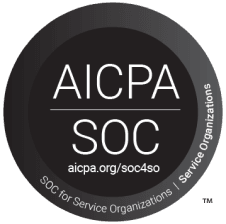The Big 4: Deloitte and KPMG and the IL&FS Saga
Stay in the know
Get the latest news & insights straight to your inbox.

Infrastructure Leasing & Financial Services Limited (IL&FS) is an Indian infrastructure development and finance company. Founded in 1987 as an ‘Reserve Bank of India (RBI) registered Core Investment Company’ by three financial institutions, namely the Central Bank of India, Housing Development Finance Corporation (HDFC) and Unit Trust of India (UTI), it provides finance and loans for major infrastructure projects. The company operates through more than 250 subsidiaries including IL & FS Investment Managers, IL & FS Financial Services and IL & FS Transportation Networks India Limited (ITNL). IL&FS has several projects in different sectors including Transportation, Area Development, e-Governance, Health Initiatives, Cluster Development, Finance, Power, Ports, Water and Wastewater, Urban Infrastructure, Environment, Education, and Tourism.
The following blog will be centered around the major events and involvement of Deloitte and KPMG in the IL&FS insolvency case.
The Liquidity Crisis in IL&FS
IL&FS defaulted on payment to lenders, with dues standing at more than INR910 B (~US$12.7 B), facing a severe liquidity crisis. Between July 2018 and September 2018, two of the subsidiaries of IL&FS Group reported having trouble in paying back loans and inter-corporate deposits to banks/lenders.
In July 2018, the road arm of IL&FS was facing difficulty in making repayments due on its bonds. Further, in early September 2018, one of the subsidiaries of IL&FS Group was unable to repay a short-term loan of INR10 B (~US$0.14 B) taken from Small Industries Development Bank of India (SIDBI). Also, certain group companies defaulted in repayments of various short and long-term deposits, inter-corporate deposits, and commercial papers.
On October 1, 2018, the Government of India took steps to take control of the company. A new board was constituted as the earlier board was deemed to have failed to discharge its duties. The new board consisted of Kotak Mahindra Bank Managing Director Uday Kotak, former IAS officer & Tech Mahindra boss Vineet Nayyar, former SEBI Chief G N Bajpai, former ICICI Bank Chairman G C Chaturvedi, former IAS officers Malini Shankar and Nand Kishore.
India’s Serious Fraud Investigation Office (SFIO) initiated investigations into procedural lapses. On April 2, 2019, former Vice Chairman of IL&FS, Hari Sankaran, was arrested by SFIO in Mumbai, India for fraud and causing wrongful loss to the troubled infrastructure lender. He was accused of granting loans to entities that were not credit-worthy or declared as non-performing accounts causing loss to the company and its creditors.
The Role of Auditors Deloitte and BSR & Co
On April 9, 2019, an anonymous whistleblower, who claimed to be part of the senior management at Deloitte, told Money life that he was ‘privy to several internal irregularities in providing professional services to IL&FS’.
Outlining how the audit firm benefited the IL&FS by helping the group fudge its accounts year after year, the anonymous whistleblower said Deloitte Haskins and Sells LLP (Deloitte) ensured a clean chit to the firm even when the RBI had red flagged issues and asked IL&FS to reduce its outstanding debt.
Deloitte had audited IL&FS Financial Services Ltd (IFIN), the lending arm of IL&FS, for 10 years and remained the auditor until 2018. The audit report had no adverse findings even in 2017-18.
Deloitte strongly disagreed with the issues raised.
The SFIO Probe
The whistleblower complaint was followed by a probe by India’s SFIO on April 12, 2019. The probe included Deloitte’s top officials for questioning to find out whether the IL&FS Group’s auditor deliberately ignored several red flags in the company's books, recommended creating complex structures, and in return received high fees from the bankrupt company.
SFIO also questioned an audit partner of BSR Co LLP (BSR), an affiliate of KPMG in India. The probe was related to 2018 audit of IFIN, which was jointly conducted by BSR and Deloitte. Later, on May 31, 2019, SFIO filed its first chargesheet in the IL&FS case against 30 individuals and entities, including businessman C Sivasankaran and nine former directors of IFIN.
It accused auditors BSR and Deloitte along with others of concealing information and falsifying accounts. The charges are under sections of the Companies Act and the Indian Penal Code, including those for cheating and criminal conspiracy.
SFIO said the IL&FS unit’s management knew that a crisis was building, however, senior executives covered up the information. Also, the auditors did not raise any red flags.
MCA Proceedings against Auditors
The Ministry of Corporate Affairs (MCA) authorized its regional unit to begin proceedings against nine auditors and audit partners, including BSR and Deloitte.
This came after these auditors were charged with "colluding with the management of IL&FS" and falsifying its books. The ministry said in an order that the Regional Director was authorized to begin proceedings under section 140 (5) of the Companies Act before National Company Law Tribunal (NCLT) against Deloitte, BSR, and auditor partners for their role in the fraud and seeking their debarment.
SFIO was directed to commence disciplinary proceedings against them before the Institute of Chartered Accountants of India and the National Financial Reporting Authority.
MCA sought NCLT’s approval to freeze assets, including bank lockers, of Deloitte and BSR. The tribunal, after hearing the MCA’s argument, adjourned the matter till August 28, 2019, as its order permitting the prosecution of the auditors was stayed by the National Company Law Appellate Tribunal (NCLAT). The Mumbai Bench of the NCLT categorically stated that it would not pass any order in the case until NCLAT decided on whether permission should be granted to the MCA to prosecute the auditors.
The MCA said it was necessary to do so to prevent diversion of funds. The MCA said the audit firms could be granted relief so that they could meet their operational costs such as salaries, electricity bills, transportation, and rental costs.
On June 11, 2019, the central government took the unprecedented step of seeking a ban on auditors Deloitte and BSR for their alleged role in helping hide bad loans at the bankrupt IL&FS Financial Services. The government sought a five-year ban under Section 140 of the Companies Act. The proposed ban, if accepted, would prevent the two firms from auditing any listed or unlisted company, including banks and non-banking financial companies (NBFCs), for five years.
NCLT had rejected Deloitte's and BSR's applications challenging the tribunal's jurisdiction to ban them from the business for five years for their omissions and commissions in the ILFS Group scam. Deloitte said that it had planned to review the NCLT order and decide on a course of action shortly. The case was decided to be heard by the NCLT on September 5, 2019.
On September 5, 2019, the Bombay High Court granted interim relief to audit firms Deloitte and BSR and restrained the Ministry of Corporate Affairs from continuing its proceedings which sought a ban on the two companies before NCLT. Corporate Affairs Ministry, which sought a 5-year ban on the auditors, was restrained from continuing its proceedings.
Potential Third-party Risks for Deloitte and KPMG Clients
It is hard to ignore the third-party risk arising from audit failures. Such events need regular monitoring because they assist companies in critical decision support for supplier consolidation, contract re-negotiations, bid evaluations, third party selections etc. Events involving faulty audits can have adverse repercussions on the company in limelight as well as on business operations. They may result in material adverse effects on business, annual and interim results of operations, additional incurred debts, costs, cash flows, and financial condition. Possible outcomes also include reputational damage, which could hurt revenue growth via client loss/limited client wins, fines, lawsuits and potential limits on operations in certain areas.
Supply Wisdom tracked the entire event, keeping customers informed through real-time alerts. These alerts were also accompanied by our analysts’ expert guidance.
Supply Wisdom also includes an objective third-party risk scoring mechanism to assess and quantify risks and impact, driven by such events. The IL&FS events majorly influenced risk scores across two of our six categories of third-party risk: Client Risk, and Governance, Regulatory & Compliance Risk.
Supply Wisdom’s Governance, Risk & Compliance Risk scores for both audit giants witnessed an increase and moved from Low to Moderate in the latest quarter.
Client Risk for Deloitte increased from Negligible to Low in its latest quarter. This was chiefly driven by a series of client losses during Q2 and Q3 2019 including DHFL, McLeod Russel India Ltd & McNally Bharat Engineering Co Ltd, Anglo American, Ferrexpo, Sygnia and FirstGroup.
KPMG witnessed a similar trend of client losses as well wherein the company quit as auditors for clients including Ricoh India, BHP, Patisserie Valerie, GAIN Capital Holdings, Inc., AJ Bell, Cineworld Group plc, Papa John's, French Connection and IL&FS Financial Services.
Any one of your third parties could create business risk for you. Governance and TPRM professionals at several client organizations use our real-time and continuous risk monitoring solution to monitor their third parties so that they can mitigate potential damages to their operations and reputation.
If you use any of the Big 4 auditors, ask us for a free demo today!






